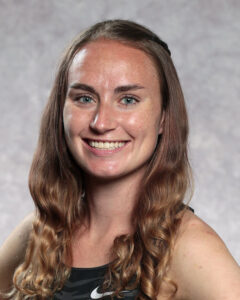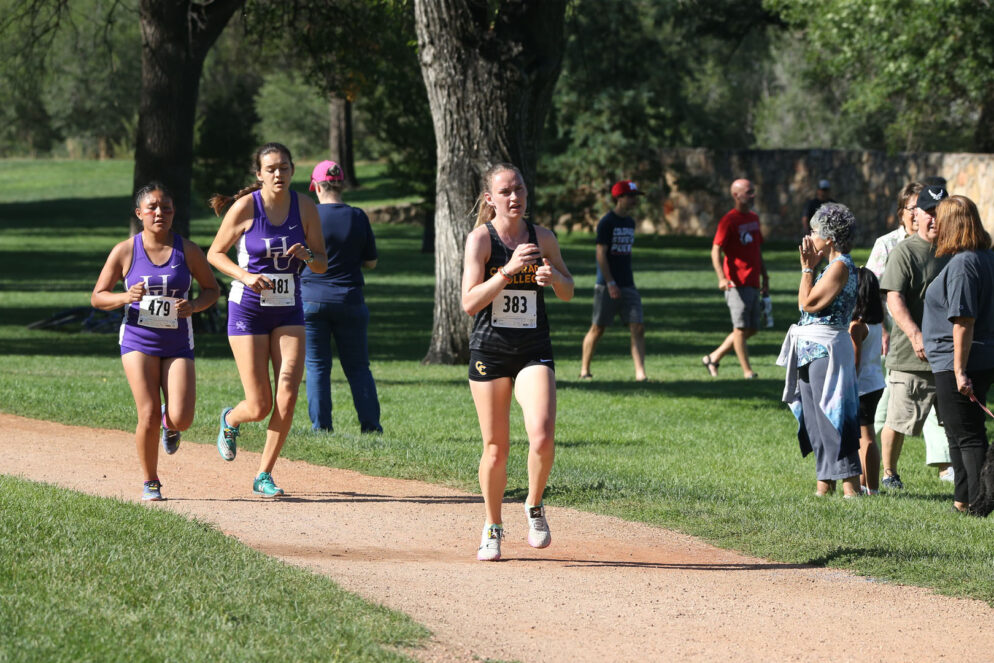Despite competing in athletics from a young age, I never realized how impactful my athlete identity was until my senior year of college, when I was tasked with advocating for 250,000 collegiate student-athletes. As a pre-med student at CC, I considered academics my top priority, but competing as an athlete in dual Division III-level sports allowed me to prioritize academics while still investing in a successful athletic career. By graduation, I was undeniably shaped by the lessons I learned as a collegiate runner and student-athlete advocate. From the mental toughness I refined during countless hours of training, to the personal and professional development I experienced during my athletic leadership journey, my student-athlete identity was central to my undergraduate experience.
 I serve as the chair of the NCAA DIII National Student-Athlete Advisory Committee (SAAC). While I did not initially plan to take on this position, I wanted to get involved to maximize the inclusion of the student-athlete voice in decision-making at the campus, conference, and national levels. Beginning my second year, I strove to fill leadership roles on my team and within the CC Athletics Department to continue the legacy of student-athlete voices producing positive change. As my involvement increased, each new position amplified my ability to respond to concerns from athletes.
I serve as the chair of the NCAA DIII National Student-Athlete Advisory Committee (SAAC). While I did not initially plan to take on this position, I wanted to get involved to maximize the inclusion of the student-athlete voice in decision-making at the campus, conference, and national levels. Beginning my second year, I strove to fill leadership roles on my team and within the CC Athletics Department to continue the legacy of student-athlete voices producing positive change. As my involvement increased, each new position amplified my ability to respond to concerns from athletes.
By spearheading campus initiatives, facilitating volunteer service opportunities, and speaking up on issues important to the student-athlete community, my investment in the committee led to increased responsibility. I earned a nomination to the National SAAC and was selected to represent the Southern Collegiate Athletic Conference.
In my first year, I participated in the NCAA convention and served as the sole DIII student-athlete representative on the Constitution Committee. My committee work included a critical review of the NCAA foundational document with the intention to write a new constitution centered on enhancing the student-athlete experience.
I faced imposter syndrome, power struggles focused more on money than student-athlete impact, and the NCAA membership doubting the committee’s work. Although I struggled to find my voice as the only committee member still actively competing, I reminded myself that my role was to speak up for student-athletes who deserve to compete in a safe space dedicated to providing them with opportunities to refine and showcase their passion for their sport(s). When the new constitution was approved, my contributions helped expand the gender equity and mental and physical health provisions for student-athletes and increased the power of the student-athlete voice within the NCAA to an unprecedented level.
Every day, I want to utilize my platform to amplify the student-athlete voice and strive to improve the student-athlete experience. My term is dedicated to pushing the collegiate athletic community to prioritize athletes’ mental health and making athletics a more supportive space for people of all identities.
Although graduating from CC means the retirement of my student-athlete identity, I will forever use my experiences as motivation to fight to improve the experience for all future athletes.
